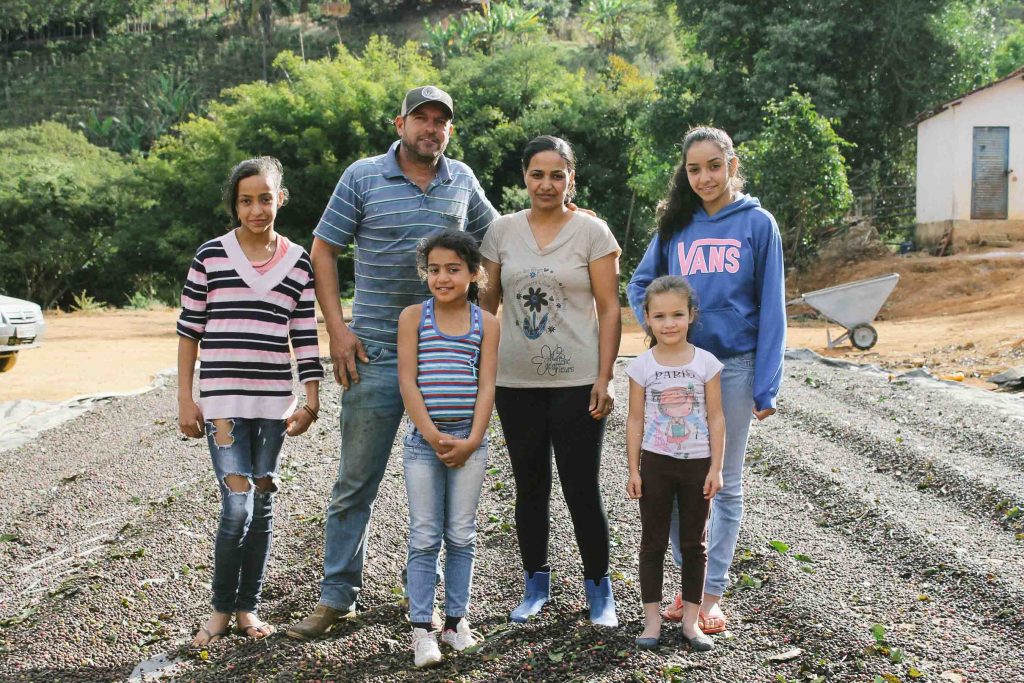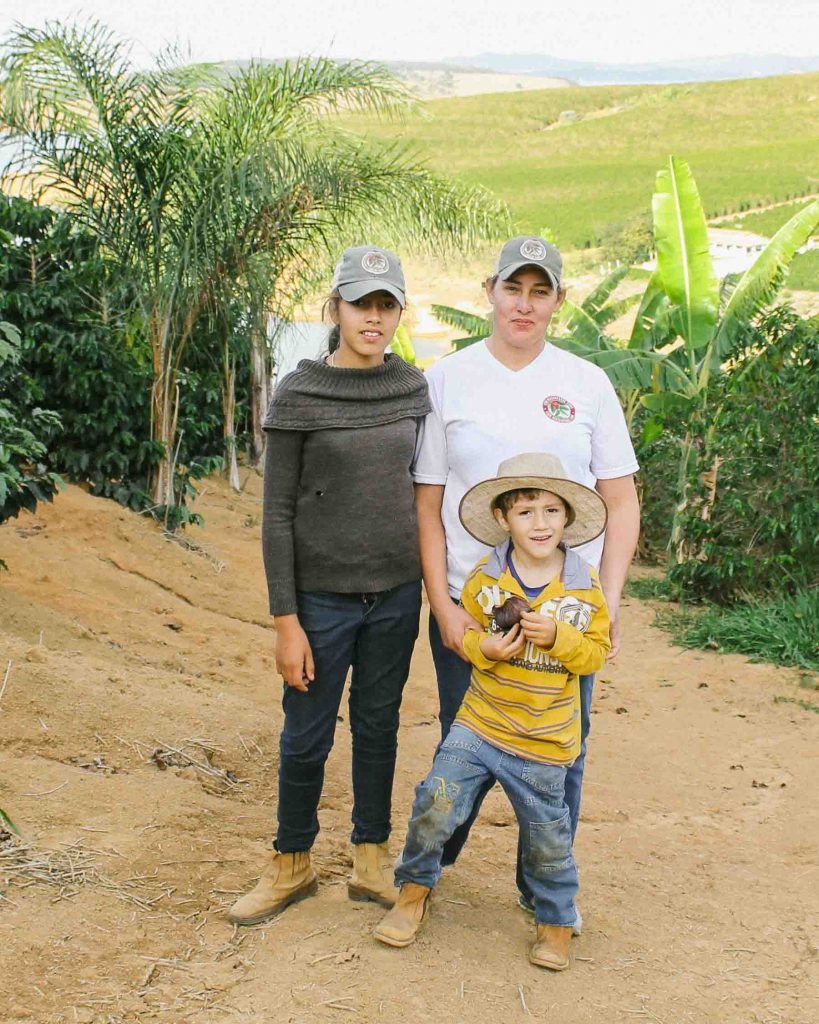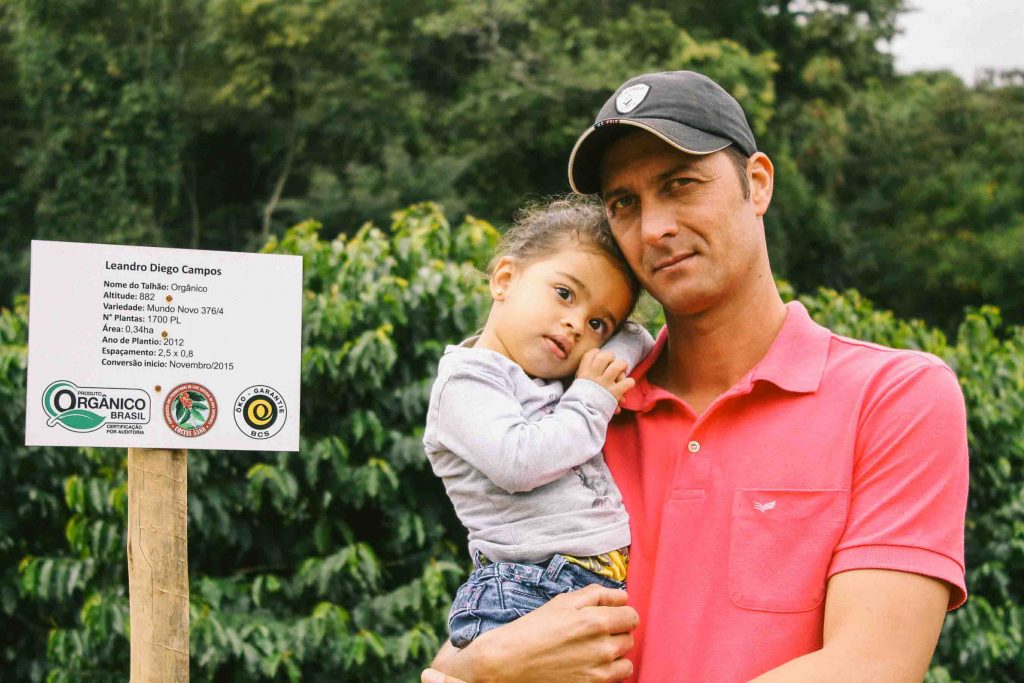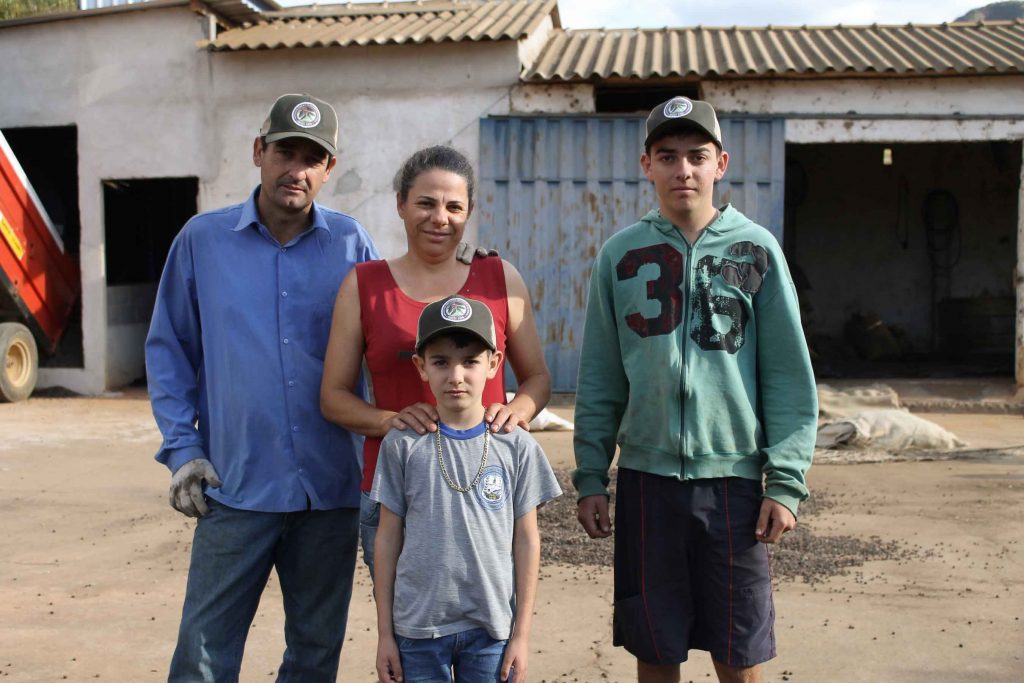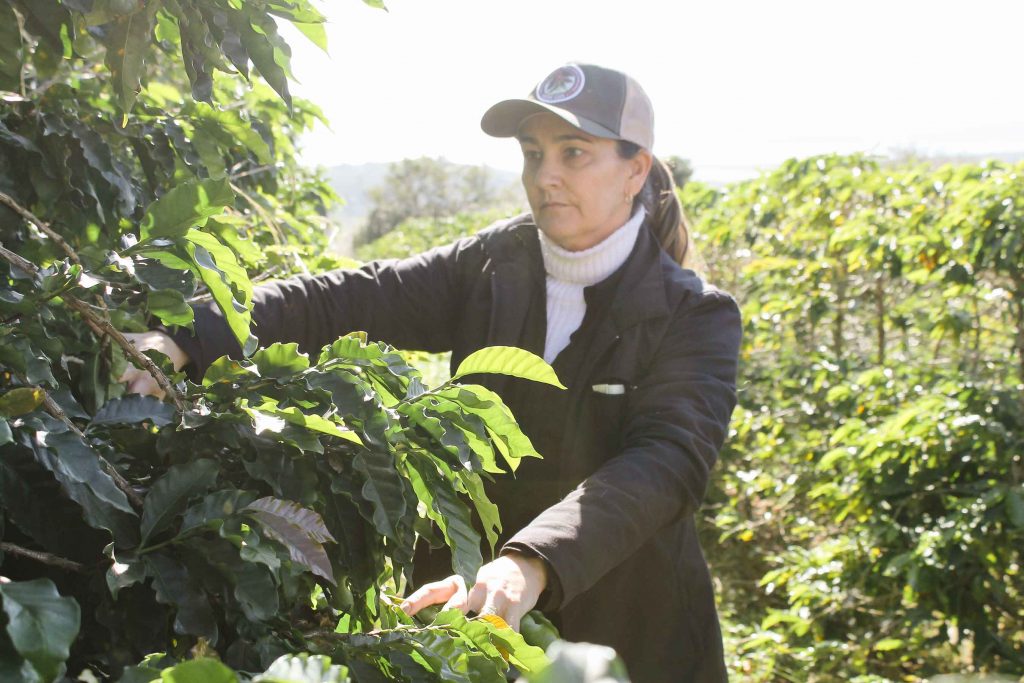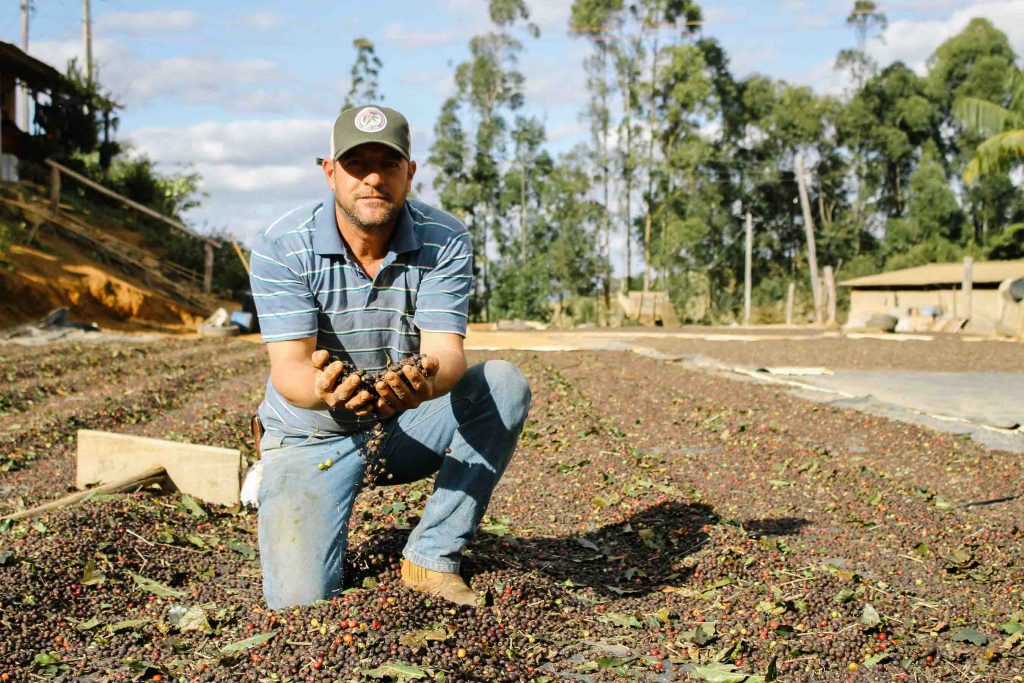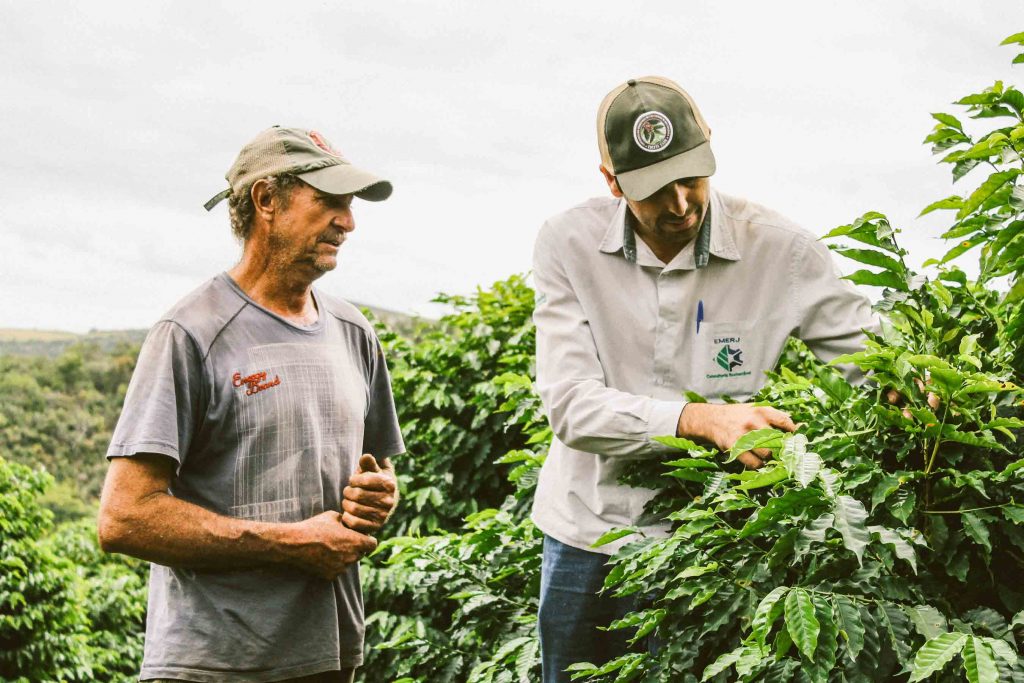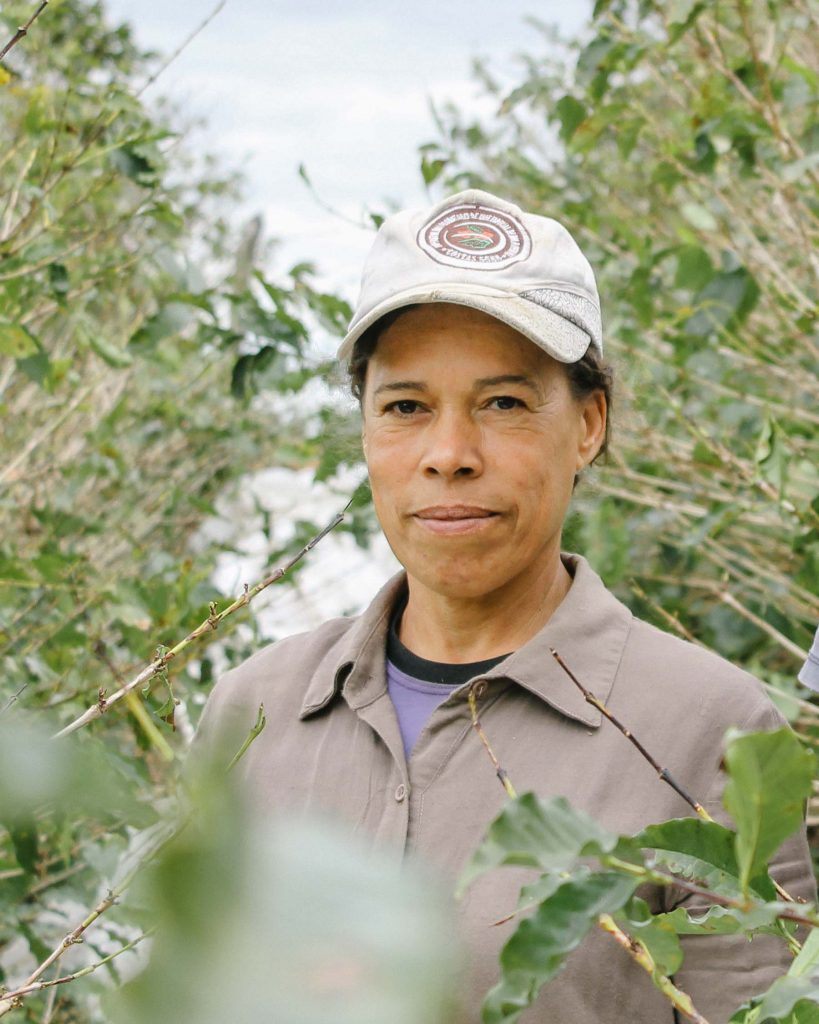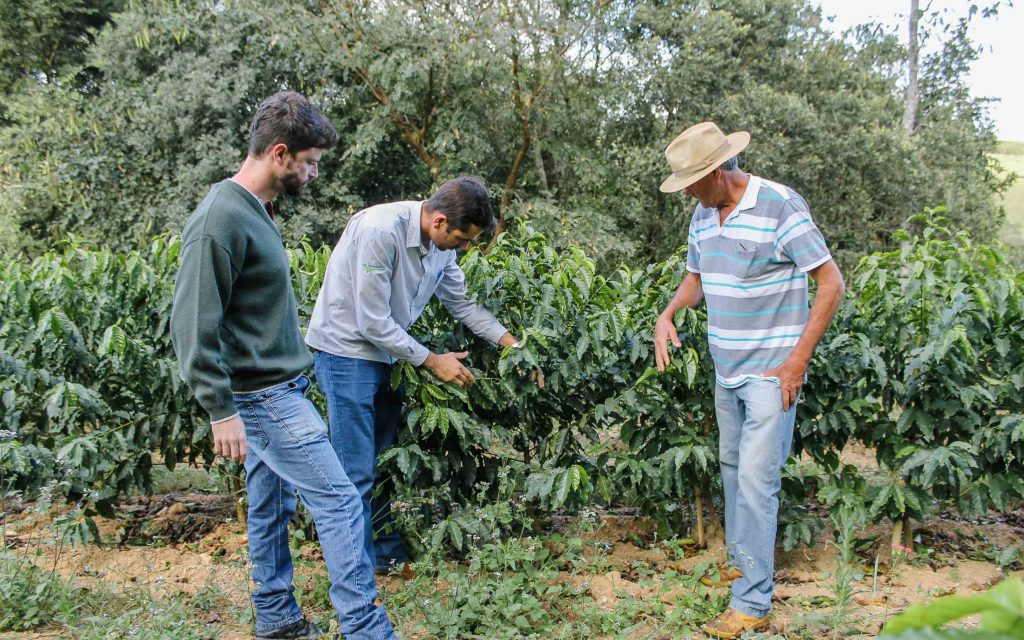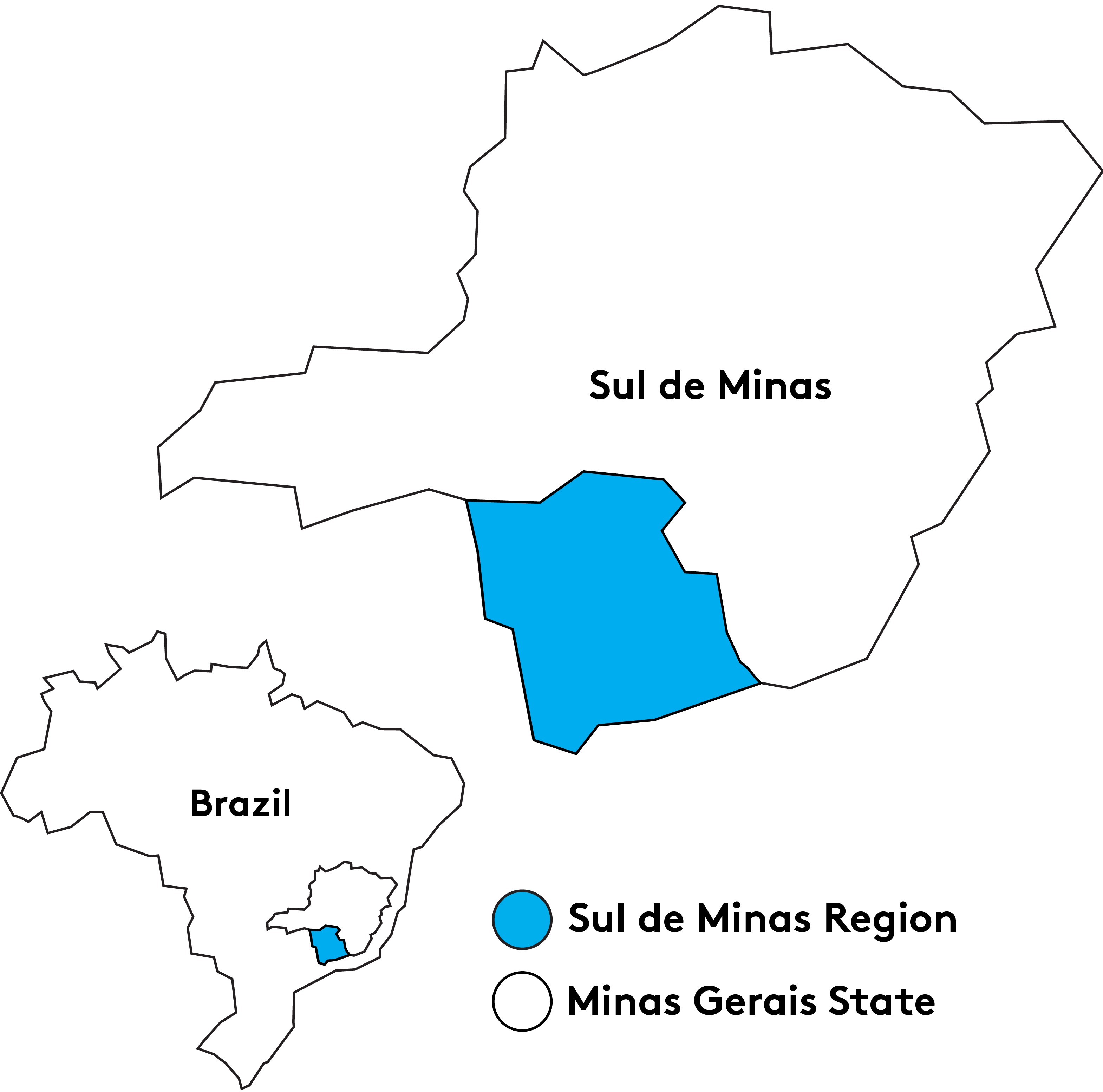Dos Costas, the Cooperativa dos Produtores de Café Especial de Boa Esperança, is a cooperative of 160 family farmers, located in Boa Esperança, in the south of Minas Gerais, near Serra Negra. Their story begins in 1989 with the creation of the Community Association of Costas, which built a solid foundation and firm trajectory to support small coffee producers by seeking economic and social alternatives, bolstering public policies for family farms, avoiding the rural exodus caused by the expansion of large coffee farms, using the latest technology, decreasing rural unemployment, and increasing the competitiveness of small growers.
Dos Costas defines their mission as: “Working for the sustainable development and welfare of cooperative members and their families and maintaining the continuous improvement of coffee quality with clients in domestic and international markets.”
In 2008, after a three year process, the cooperative earned FLO Fairtrade certification and grew its member base, environmental stewardship, and social development. In 2009, 69 producers from the Community Association of Costas decided to create the Cooperativa dos Produtores de Café Especial de Boa Esperança that could serve national and international coffee markets without losing site of its mission.
Purchasing Dos Costas coffee is a choice to consume quality coffee and collaborate with a production process that respects environmental preservation, dignified work, and sustainable agriculture. The cooperative has completed several extensive soil analyses and geographic mapping projects. Many of Dos Costas’ members participate in annual quality trainings and work with agronomists throughout the year. The members are continually applying their knowledge from these studies and workshops to further enhance the quality of their coffee and to effectively protect the land that they live and work on.
Dos Costas is committed to improving the quality of life for small producers in Minas Gerais. Improving the standard of living helps producers develop high quality coffee through sustainable environmental practices, while maintaining social awareness in accordance with Fair Trade principles.
